

 Language
LanguageMar 08, 2024
This blog will define what is a solar battery storage system and discuss its key benefits.
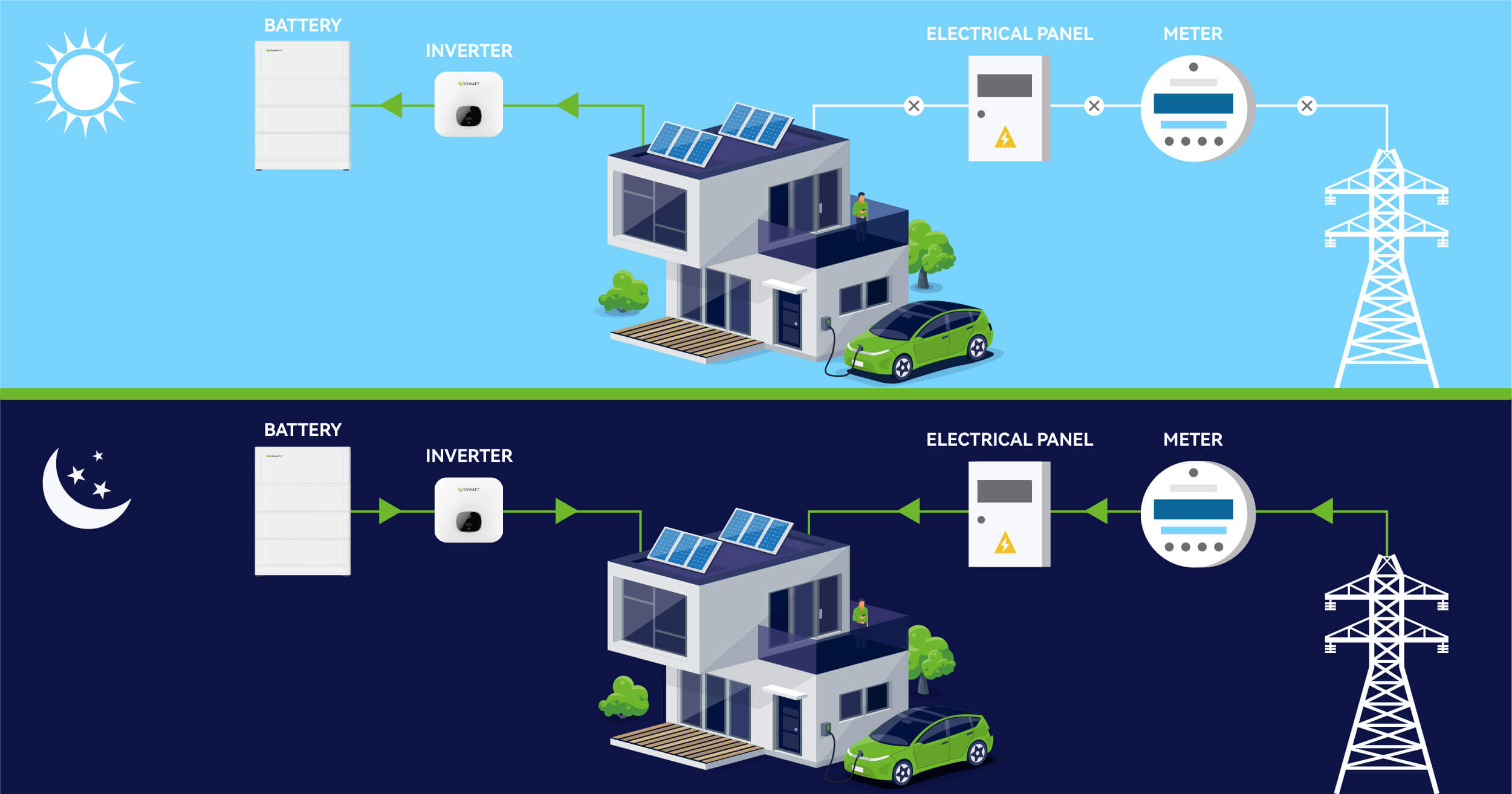
The solar battery storage system stores surplus solar energy from the PV modules for later usage.
Solar panels typically produce the highest amount of electricity during the day and the lowest amount during the night. When a home/commercial premise is retrofitted with a battery system, the inverter can send the surplus energy made during the day to the battery. Then, the stored energy in the battery could be used to power the loads at night.
In principle, the most important advantage of the energy storage system is power security, which ensures that users have backup power during power outages or grid failures.
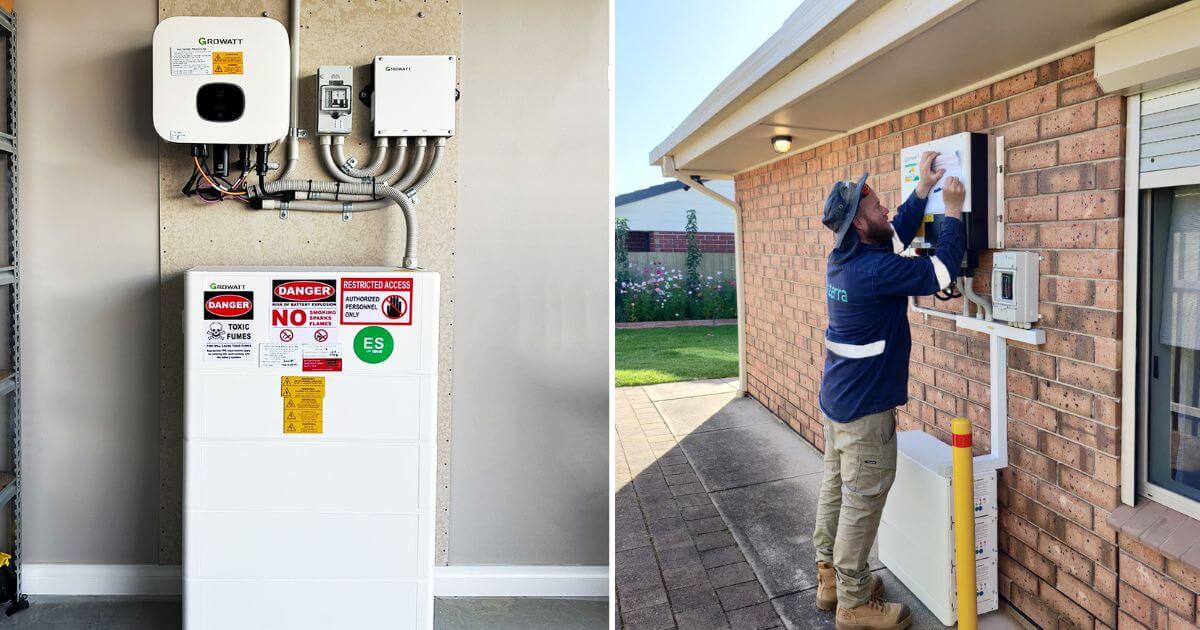
Be it for home or business owners, having a solar energy storage system will encourage 1) self-consumption and 2) self-sufficiency in energy usage.
An energy storage system helps with self-consumption, whereby the individual or business could utilise a greater amount of self-generated energy to power their homes/commercial premises. With an energy storage system, the battery could store solar energy made by the PV system during the day and make it available for consumption during the night. This option promotes power consumption from one's solar system rather than the grid.
In addition, having an energy storage system promotes self-sufficiency in household/business premises. Depending on the battery system's capacity, users can use the batteries' stored power to power their loads entirely or partially. This is dependent on the battery system's capacity, which typically starts at 1.2 kWh for lithium batteries and can reach 400 kWh based on the battery's design and capacity. Users can expect to be completely independent off the grid when using a large offgrid energy storage system.

Installing solar PV panels and energy storage systems can significantly decrease electricity bills. While the benefits of a solar battery storage system are not immediate, the savings become increasingly apparent over time. By installing an energy storage system, users can lessen their reliance on the increasingly expensive electrical grid. As global energy prices fluctuate, consumers who rely on the grid may face higher electricity costs. By using an energy storage system, the consumer could expect a more stable and economical energy source that does not change with grid prices. Thus, it makes good financial sense to install a solar battery storage system to reduce electricity bills.

One of the most obvious benefits of owning a solar battery is the ability to store the energy generated by the solar system. This is especially important during blackouts, where backup power is available to ensure that normal human activities can continue despite the grid failure. Not to mention, having a secondary power source besides a power generator can solidify the power security of the home and businesses, ensuring that essential appliances like lights and refrigerators remain work smoothly regardless of the power situation.

Depending on the solar sizing of the PV modules, many solar users may have surplus energy produced during the day, which cannot be stored and used later. This implies that a solar battery system is required to store solar energy that is not used during the day to power loads in homes and businesses at night. In short, the presence of a solar battery system would allow the solar energy collected by the PV modules to be utilised to its fullest potential.

A battery storage system allows clean energy to be stored for later use, as opposed to energy produced by grid companies, which emits more carbon dioxide due to the combustion of fossil fuels, coal, and other sources. As such, it is more environmentally friendly to store and use solar energy since it reduces carbon footprint.
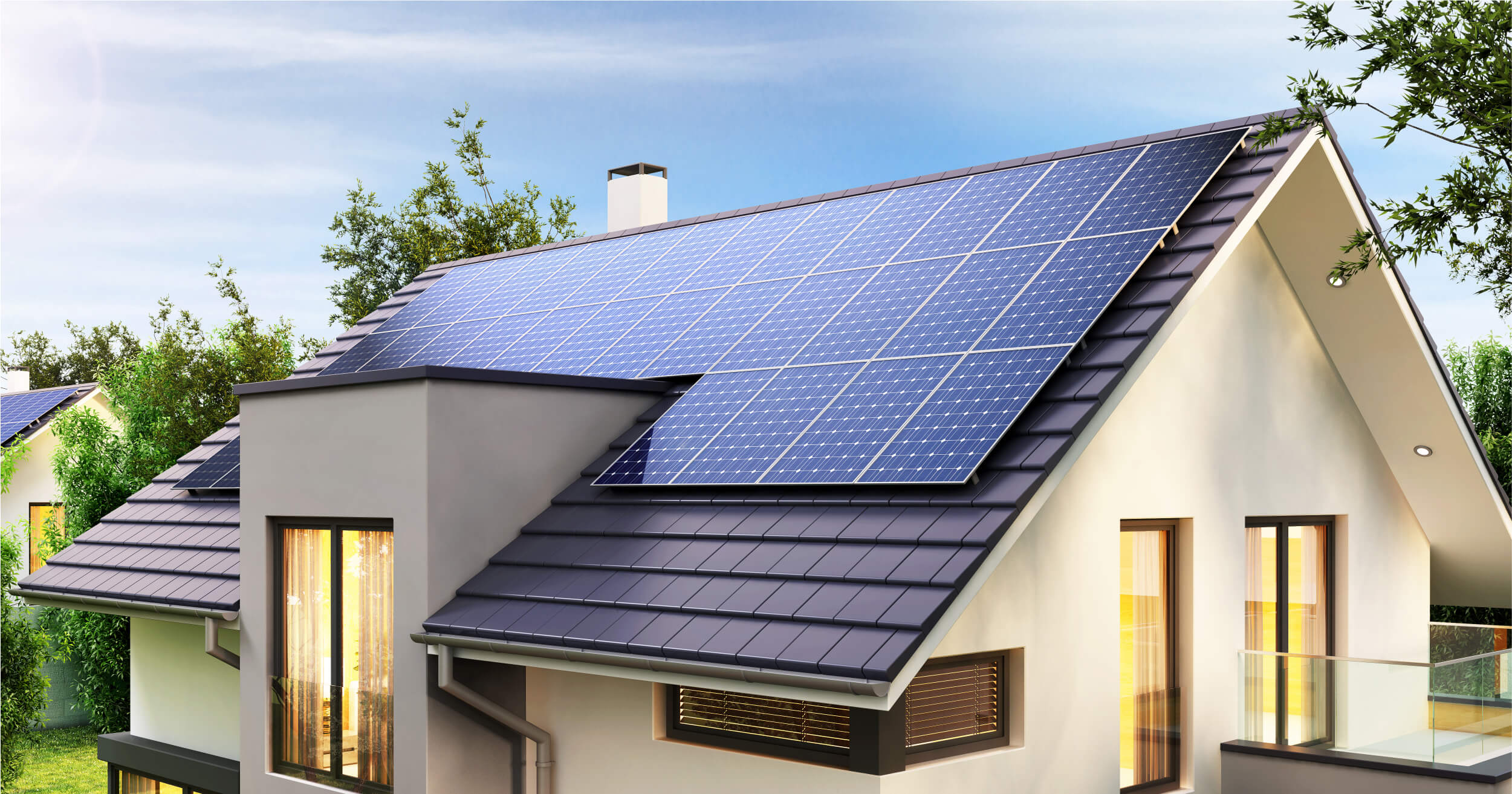
What and how many appliances can a battery run depends on its power output rating and type of energy storage inverter used in the storage system. Kilowatts (kW) are used to measure the power output. A refrigerator, WiFi router, lights, outlets, device chargers and even an electric cooker can all be powered by a solar battery with an output of at least 5 kW. However, it is advised to consider the power and surge rating of the hybrid/off-grid storage inverter when selecting the best energy storage system. Certain appliances, such as refrigerators, air conditioners, and electric stoves, may have high power requirements, which can damage hybrid and off-grid storage inverters with lower power ratings. By understanding the surge ratings of both the inverter and appliances, users can ensure that the battery can supply power back to the household/business and the inverter can withstand the power surge from these high-powered appliances.
The Battery Booster Rebate policy in Queensland provides financial incentives to eligible homeowners who install home battery energy storage systems. The goal of the policy is to encourage power self-sufficiency for Australians residing in that region by making it easier for homeowners to install energy storage systems in addition to solar panels. The following are the main advantages of the government incentive:
Financial Assistance: Eligible homeowners can receive a rebate of up to $3,000 towards the purchase and installation of a home battery energy storage system, significantly reducing the upfront costs associated with adopting this technology.
Cost Savings: By storing excess solar energy during the day and using it during peak demand periods or at night, homeowners can potentially save up to $600 per year on their electricity bills, leading to long-term cost savings.
Increased Energy Independence: Installing a home battery system allows homeowners to rely less on grid electricity, with some systems capable of providing up to 80% of a household's electricity needs during grid outages. This level of energy independence provides peace of mind and ensures an uninterrupted power supply during emergencies.
The purpose of New South Wales's Battery Installation Discount policy is to promote battery installations in the region. The Australian government announced plans to develop a 6MW virtual power plant (VPP), which led them to offer incentives for installing batteries to promote the use of solar energy. Here are some key benefits of the incentive:
Financial Support: Eligible homeowners can receive financial assistance through the rebate program, reducing the upfront costs associated with purchasing and installing home battery energy storage systems. The rebate offers up to $3,000 to offset installation expenses.
Cost Savings: By storing excess solar energy during the day and using it during peak demand periods or at night, homeowners can significantly reduce their electricity bills. The Battery Booster program estimates potential annual savings of up to $600 per household.
Energy Independence: Home battery systems provide homeowners with greater energy independence. During grid outages or blackouts, these systems can continue to supply power to essential appliances.
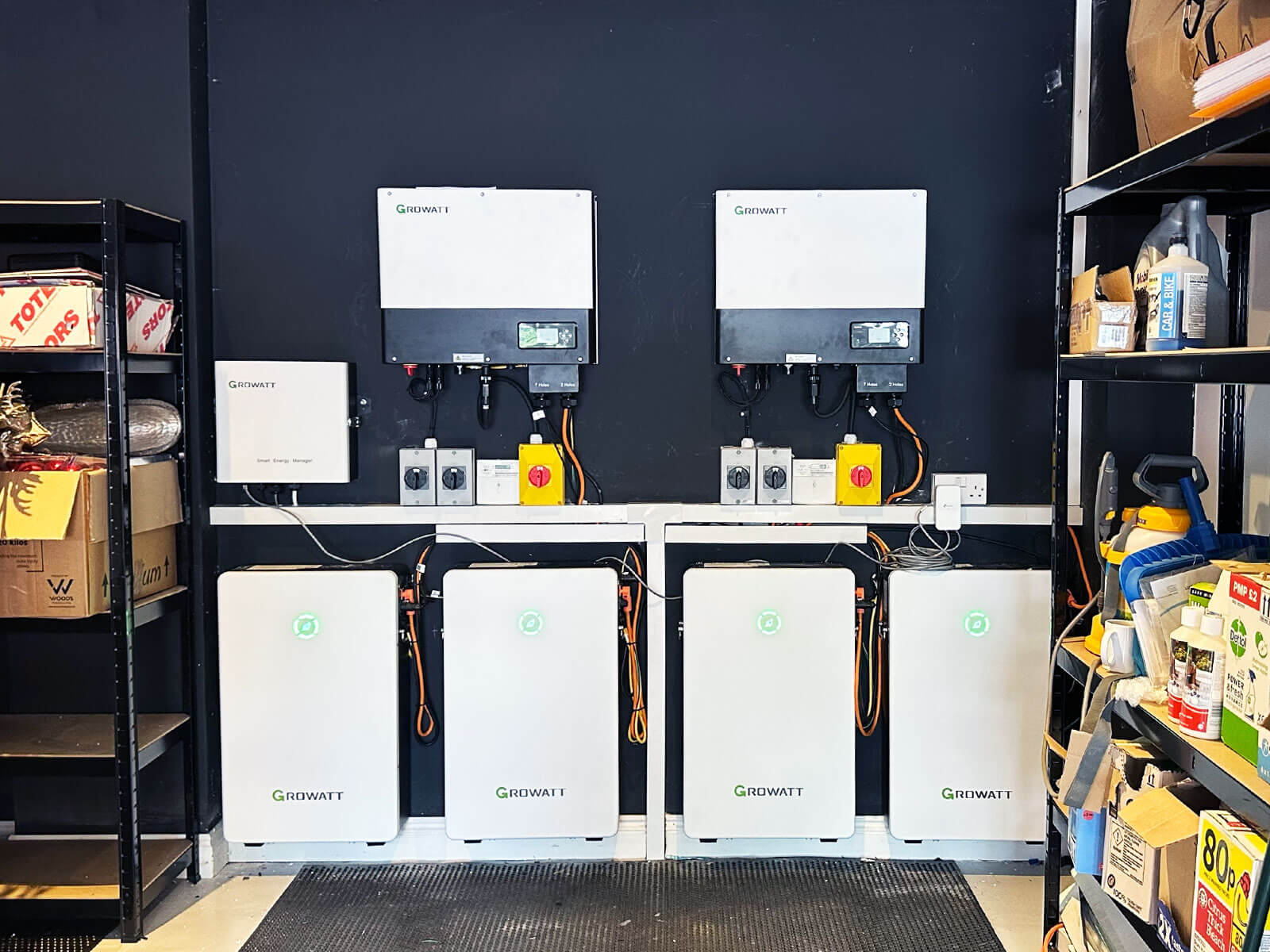
It is important to choose the best solar battery storage system for your specific energy needs. Here are two important aspects to consider when purchasing a solar battery storage system:
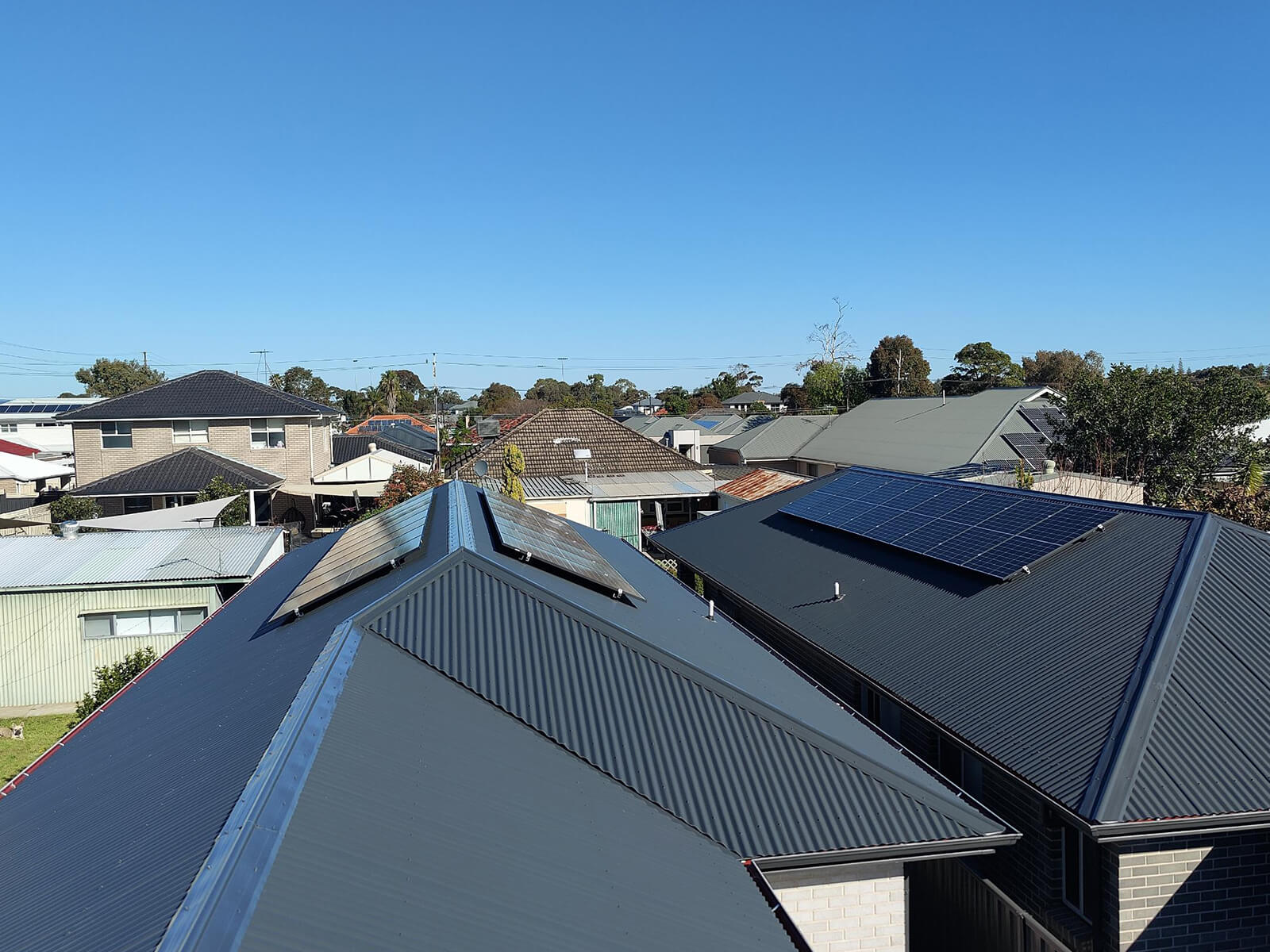
Before purchasing a battery system, the customer needs to understand his/her personal energy usage, and solar panel size.
Every customer consumes different levels of energy throughout the year. By knowing his/her specific energy consumption level, the customer could estimate the optimal system size for their usage. Higher energy usage typically requires a larger energy storage system, especially for customers who want to eliminate bills.
Moreover, it is crucial for customers to understand the size of their solar panels. Bigger panels can gather more sunlight, providing a higher level of energy production for homes or businesses. Knowing the solar input capacity is important, as it helps determine the right energy storage inverter and battery system setup. With larger panels, users will need a higher-power energy storage inverter to handle the increased input. Also, they will require a battery system with a larger storage capacity to store the surplus electricity generated by the inverter. Thus, before buying solar panels and energy storage systems, buyers need to calculate their energy needs carefully to purchase the ideal energy storage system of their choice.
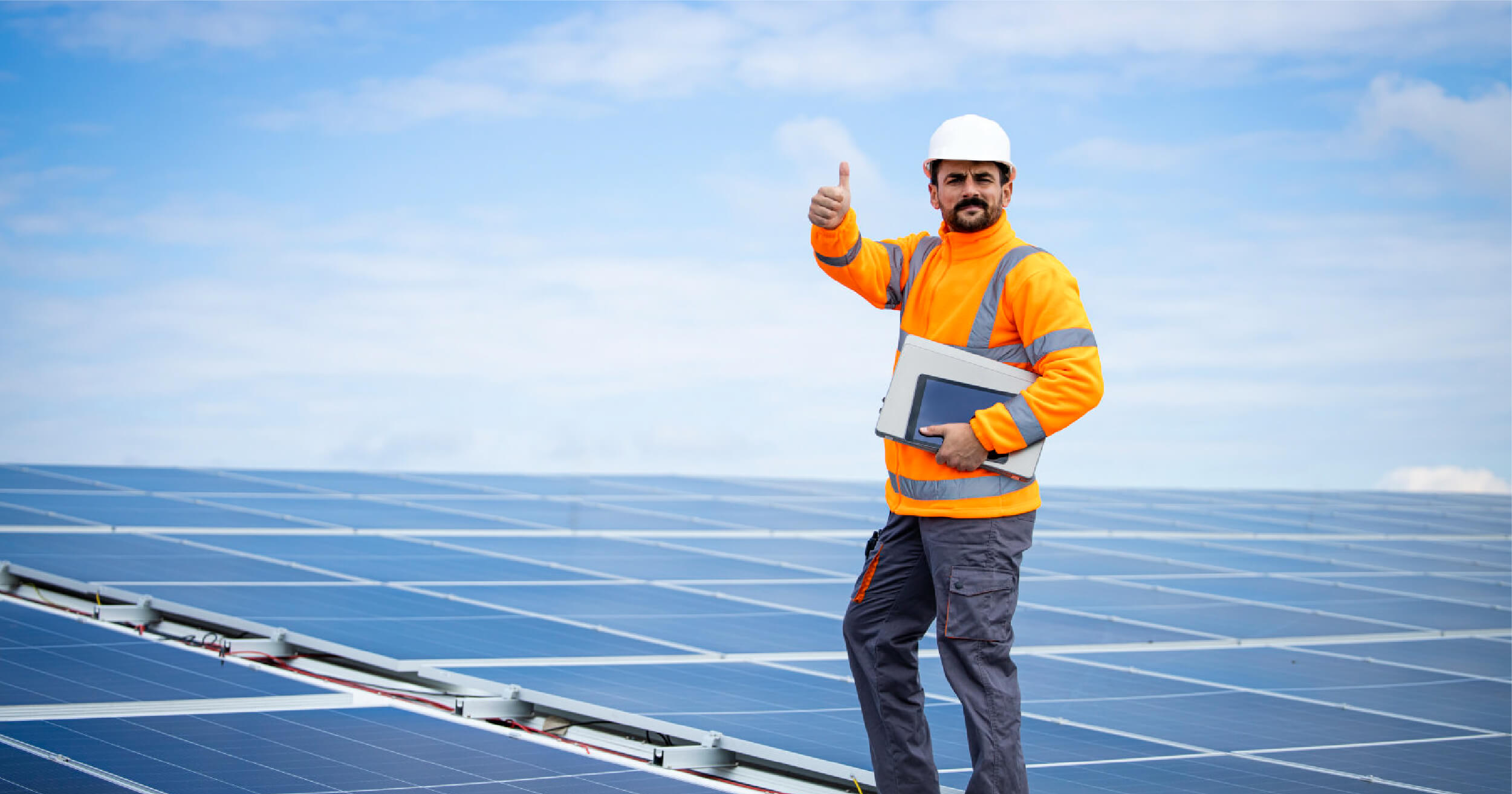
It is recommended to check the warranty period of the batteries with the sellers and distributors. Knowing the warranty period can give you peace of mind and confidence when selecting the best batteries for your needs. For more information on solar batteries, check out Growatt's extensive line of battery storage systems that are safe, reliable, and efficient.
Interested to know more about Solar batteries?
Check out Growatt’s Energy Storage Solutions, which caters to Residential, C&I and Utility-scale applications.
 Subscribe to our newsletter
Subscribe to our newsletterSubscribe Now!
Subscribe
Insert your details below to receive information
*Enter Verification Code:


© Growatt New Energy All Rights Reserved

